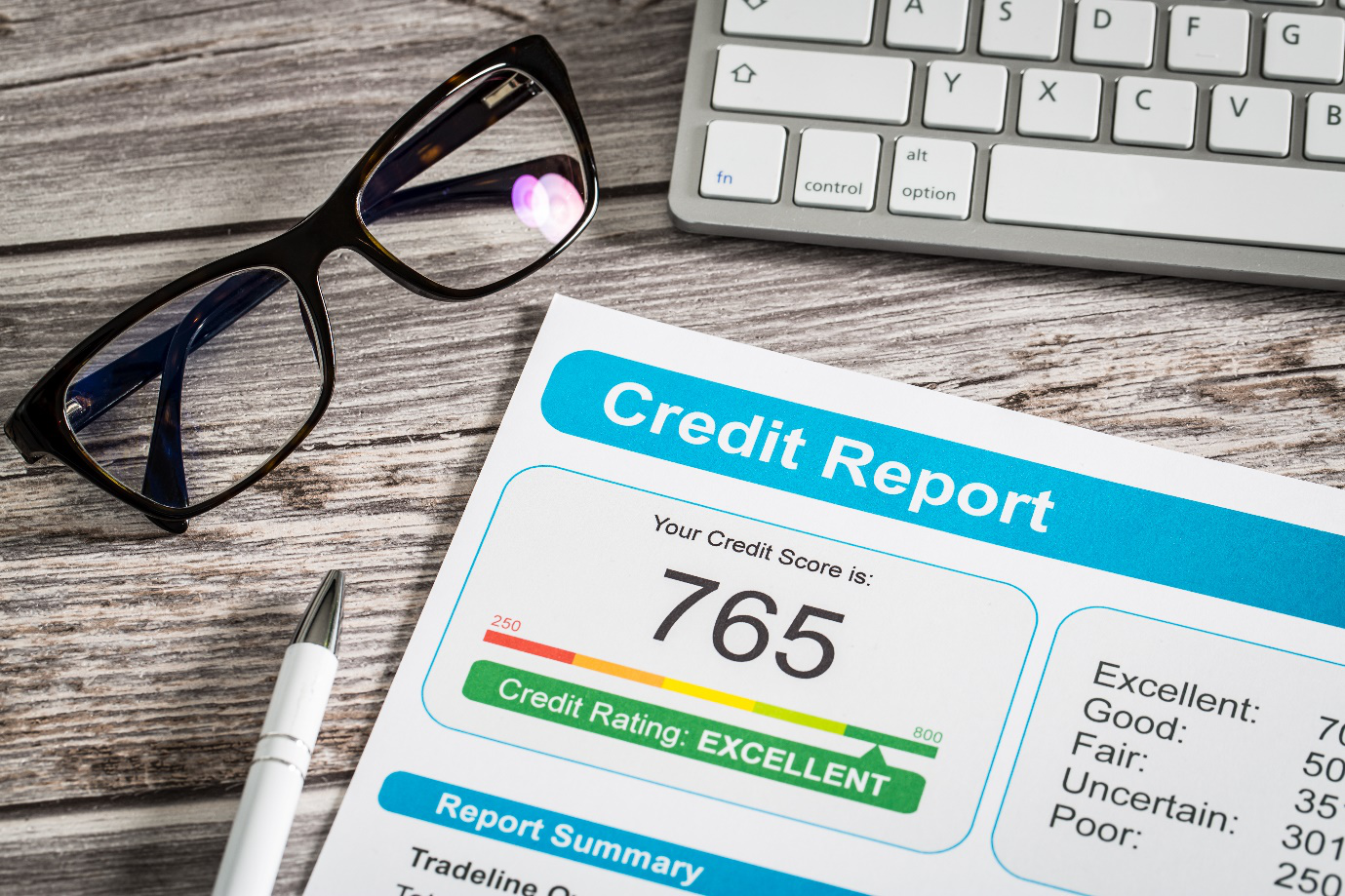Written by
Updated :
Reviewed by
Credit score is a three-digit number between 300 and 900 that indicates your creditworthiness as mentioned. A high credit score can help you get a new credit card or loan with ease, while a low credit score can impact your eligibility to get approved for new credit. But even if you have a low credit score such as 600 or lower, all is not lost. There are various ways you can increase your credit score. Read on to learn the 5 simple ways you can improve your credit score.

5 Easy Ways to Improve Your Credit Score
Your credit score is calculated based on your credit history. So if you have not been judicious with your credit cards or loans in the past, you will have a low credit score. If you have a low credit score, taking the following steps will improve your credit score over time.
1. Pay Your Dues on Time
The very first thing you should know when wondering about how to increase credit score is to pay your credit card bills and loan EMIs on time. If you keep skipping payments or pay your bills late repeatedly, it will lower your score. This also indicates your inability to handle your finances well. If you make a habit of paying your dues on time, it will play a significant role in improving your credit score.
2. Avoid Taking Multiple Loans
Are you someone who believes in taking a loan every time you get broke? If the answer is yes, then it’s high time you stop doing it. Do not take loans from different lenders. So, suppose you take a loan from three different lenders; all these agencies will send a request to a credit rating agency to ask about your CIBIL score and these are known as hard enquiries. Now all these hard enquiries will hamper your credit score as well. So be judicious with your borrowings and keep your outstanding loans at a minimum.
3. Check Your Credit Report for Errors
When it comes to knowing how to increase credit card score, it is essential to know what is causing your low credit score. How else will you be able to improve it? You can only improve your credit score easily only if you know the real-time status and the reason why your score is adversely. By checking your credit report at least 2-3 times a year, you can know two crucial facts.
The first will be to know where you are lacking and what is ruining your current score. Second is to ensure that there are no errors in your credit report like an outstanding loan that was not taken by you or wrong PAN details. Such errors, when rectified, will also help increase your credit score.

Investment Articles
- Benefits of ULIP Investment Plan
- Types of ULIPs
- How to Save Tax with ULIPs
- Maximize Returns With ULIPs
- Best Short Term Investments for Tax Saving
- What is Power of Compounding
- What is Investment
- Types of Investment in India
- 80C Investment Options
- Fixed Deposit Interest Rates
- Voluntary Provident Fund
- Difference Between Saving And Investing
- What is Fixed Deposit
- What is Term Deposit
- What is Recurring Deposit
- Fixed Deposit vs Recurring Deposit
- What is KYC
- Max Life Guranteed Income Plan
- What is ULIP
4. Don’t get too many credit cards
If your application is being rejected, don’t just keep applying for a new card repeatedly, as this information is also recorded in the credit score report. If multiple rejections show up on your report, you will be considered credit hungry and your score will decline. So keep an interval of 3 to 6 months so that your credit score gets time to improve before you apply for a new credit card.
5. Monitor Your Co-Signed Loans
Another way you can improve your credit score is to closely monitor loan accounts that you have co-signed and if possible avoid being a joint applicant. Being a joint applicant for a loan can put your credit score at risk if the primary borrower defaults. Defaults of co-signed loans show up on your credit report and adversely impact your credit score.
The above 5 methods are the best ways to improve your credit score but they are not the only ones. Other tips you can follow to improve your credit score are:
- Keep track of all your EMIs and repayments to avoid missing deadlines.
- Don’t close credit card accounts and open new accounts frequently
- Maintain a balance between secured credit and unsecured credit
- Do not max out your credit card frequently
As long as you follow the above tips, you will be able to increase your credit score. However, do keep in mind that improving your credit score can take time from a few months to over a year depending upon how low your credit score is to start with.
Why Does Having Good Credit Score Matter?
Improving your credit score might seem like a time-taking and difficult task. But there are multiple reasons why you should take the trouble of maintaining a high credit score. Here are some key advantages you get, if you have a high credit card score:
1. A good credit score indicates that you are responsible when it comes to repaying loans and credit card bills. No financial institution wants to lend money to a person who is not trustworthy.
2. If you have a high credit score, banks and other financial institutions will grant you a loan at a lower interest rate. A good score also means lesser paperwork!
3. Though various other factors play a crucial role while granting a loan, one cannot ignore that your credit score and history is one of the main deciding factors.
4. A good credit score will make your loan application more attractive and can increase the speed at which your loan application is processed.
5. Also, a higher credit score increases your chances of getting approved for a longer tenure to repay your loans. This means you can pay smaller EMIs for a long time, which means less burden on your pocket.
6. The increased credit card limit is another benefit you will receive if you have a higher credit score.

FAQs
1. How can I check my credit score?
You can easily check your credit score by visiting the website of any of the 4 Indian credit bureaus – CIBIL, Equifax, Experian or CRIF Highmark. You can just enter your details like PAN, date of birth, name, etc. Once your identity and other details are verified, you credit report and score will be generated.
2. What is the ideal CIBIL score for acquiring a loan?
CIBIL score ranges between 300 to 900. A score above 700 is ideal for applying for a loan at any financial institution. However, if you are planning to apply for an unsecured loan, having a CIBIL credit score above 750 is considered good.
3. Who calculates credit scores in India?
In India, the Credit score is issued by 4 different credit bureaus. These are CIBIL, Experian, Highmark and Equifax. CIBIL is considered the most popular as it is also the oldest. Lenders request credit history from any of the credit bureaus to determine whether the applicant is creditworthy or not.
4. I want the bank to write-off my loan will it impact my credit score?
Yes. If you get an outstanding bank loan written off or decide to settle an outstanding loan, your credit score will decrease. It is best to pay off your outstanding loan in full. You should opt for a write-off or loan settlement only as a last resort if you are unable to pay the loan.
5. I have multiple investments in shares and mutual funds, but my credit score is only 650. Why is this happening?
Your investments in mutual funds and stocks do not have any impact on your credit score. So, you need to check your full credit report to know the reason why you have a low score.
Sources:
https://www.hdfcbank.com/personal/resources/learning-centre/borrow/7-smart-ways-to-improve-your-cibil-score
https://www.outlookindia.com/website/story/business-news-five-steps-to-improve-your-credit-score/400989
https://www.fullertonindia.com/knowledge-center/good-cibil-score.aspx
https://indianexpress.com/article/business/banking-and-finance/good-to-know-3-reasons-why-you-should-check-your-credit-score-credit-report-regularly-7863559/
https://www.cibil.com/faq/understand-your-credit-score-and-report
https://www.rbi.org.in/scripts/PublicationReportDetails.aspx?UrlPage=&ID=763#5INT
https://economictimes.indiatimes.com/wealth/borrow/what-does-status-like-closed-settled-and-written-off-in-your-credit-report-mean/articleshow/52554129.cms
https://indialends.com/things-you-wont-find-in-credit-report
ARN No: Nov22/Bg/15

